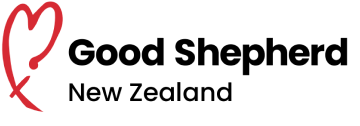Key issues
Our work addresses issues that threaten women’s wellbeing and safety, with a particular focus on financial hardship and economic harm from family violence.

Many people and families face financial hardship and harm. For example, they don’t have enough money to live comfortably, have no savings for assets or emergencies, and have unmanageable and/or unjust debt. This affects people’s wellbeing and holds them back from leading full lives.
Financial hardship and family violence are intersecting issues. Experiencing them can prevent someone’s access to essential services, housing, good nutrition and healthcare, and make it hard to participate in community. People affected might not be able to live safely. Factors like ethnicity, sexuality and disability can lead to further disadvantage.
Financial hardship and economic harm are influenced by — and connected with — other social challenges including inequity in the labour market, the gender pay gap, intergenerational financial insecurity, and sexism.
Financial hardship
People on low incomes are often forced to take on high-cost debt to pay for essentials, or go without. Many women are excluded from aspects of health and society due to lack of financial resources.
Gender-based disadvantage in the labour market means women continue to have different experiences and opportunities compared to men.
- On average, women hold higher qualifications than men do but still tend to occupy lower-skilled work and receive lower remuneration.1
- A higher number of women do part time and casual work, likely due to a disproportionate share of care and domestic duties limiting hours available for paid employment.2
- Single mothers face added stressors through not receiving child support payments they are entitled to. As at 30 June 2024, child support debt is $1.005 billion.3 A 2022 study found men make up 84% of people who owe payments.4
Lower earning potential stemming from this disadvantage can lead to women:
- experiencing poverty and hardship, making it hard to pay for basic necessities and pushing them toward harmful debt.
- having reduced ability to save for retirement, making them more vulnerable to life shocks like divorce/separation or widowhood.
- needing to rely on government benefits and loans to pay the bills.
At the extreme end of hardship, women might find themselves unable to access safe, affordable housing. They might stay in abusive relationships, live in cars or garages, or end up homeless due to a lack of alternative housing options.
1, 2 Labour market participation | Ministry for Women
3 Statistics on child support customers, cash collection, and debt | IRD
4 Patterns across debt and debtors to government | Social Wellbeing Agency
Economic harm from family violence
People experiencing family violence can have their financial resources and assets completely depleted because of abuse. Some women can’t afford to leave violent relationships or stay safe. Some have to choose between violence and poverty. Financial harm can last long after an abusive relationship has ended.
New Zealand has high rates of violence against women
- In 2023, New Zealand was 10th among OECD countries for the prevalence of intimate partner violence over the lifetime, with an estimated 23% of women experiencing violence in a partnered relationship.5
- Data reported by Te Puna Aonui shows 1 in 3 women will experience physical or sexual violence within a partnered relationship in their lifetime, and 1 in 2 women will experience psychological violence.6
Economic abuse, and the harm it causes, is a form of family violence
- Recent research has shown that 15% of women have experienced some form of economic harm by an intimate partner in Aotearoa New Zealand. This can include behaviours such as monitoring or restricting a person’s access to bank accounts, making financial decisions without consulting a partner, or accumulating debt under someone else’s name.7
- The same study showed that women who had experienced economic harm were at increased risk for both poor mental health and financial insecurity. This can compound with the effects of other forms of family violence, which often occurs alongside economic harm.8
- Research by Women’s Refuge shows economic harm affects women’s access to employment, limiting their financial independence during and after an abusive relationship.9 Faced with the threat of poverty, women may choose to stay in an abusive relationship. A lack of financial independence and dealing with the impact of economic harm (or economic abuse), are cited as key reasons people stay in violent relationships or are unable to overcome the enduring effects of abuse and establish a life free from family violence.
Economic harm is one of the least widely recognised and understood forms of family violence
- It can be hard to identify economic harm. Like other acts of psychological violence, it doesn’t leave visible marks. It often occurs alongside other types of violence but can also be a standalone act.
The impact of economic abuse can be devastating and can affect financial wellbeing long after the relationship is over
- Debt taken out in a woman’s name by coercion or without her knowledge or consent can be immensely difficult to manage. The effect on credit scores often prevents a person being able to rent a house, access utilities like power and phone, or take out a loan for essentials like transport.
- Users of abuse sometimes continue to exert control through methods like refusing to pay bills for the family home after their partner flees, hiding income to avoid paying child support, or causing expensive damage to shared property.
5 Violence against women indicator | OECD
6 People impacted by family violence and sexual violence in Aoteroa | Te Puna Aonui
7, 8 He Koiora Matapopore 2019 New Zealand Family Violence Study
9Women’s Experiences of Economic Abuse in Aotearoa New Zealand | Women’s Refuge
Working to address financial hardship and economic harm
Good Shepherd delivers services to help women and girls experiencing poverty and family violence, raise awareness of issues, and push for better policies and systems to reduce harm.
Our work:
- builds financial security and resilience for women, girls and their families
- identifies and addresses social issues where they intersect with our financial and economic wellbeing work
- helps improve policies and practices to reduce and remove barriers to safety, financial inclusion and economic participation for women.
